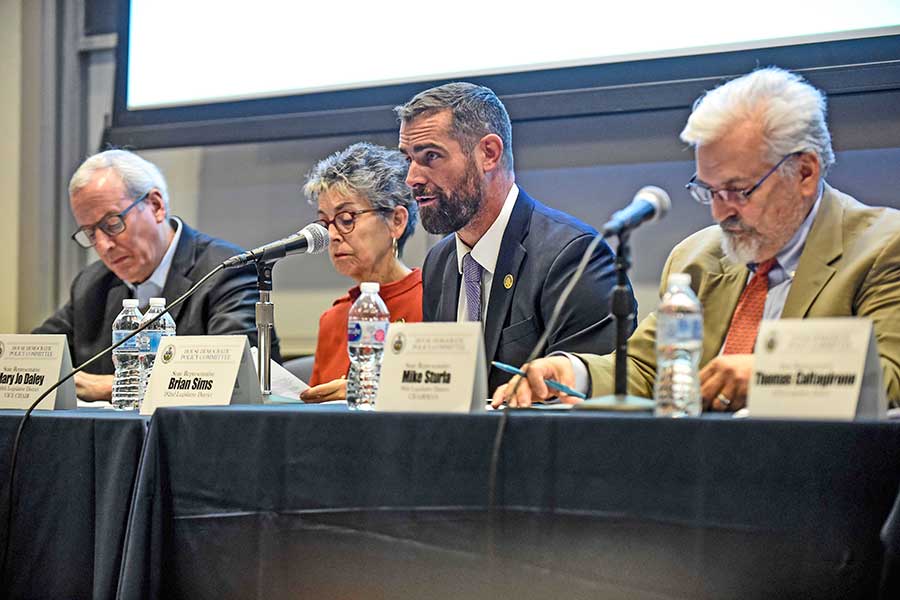Last week, State Rep. Brian Sims hosted a legislative policy hearing in Center City about comprehensive sex education for Pennsylvania’s youth. The hearing spoke to HB1586, the Comprehensive Sex Ed Bill, introduced into the State House last February and referred to the Committee on Education last June.
In addition to Sims, the other principle cosponsor is Rep. Mary Jo Daley. As of June, when it went to committee, the bill had 25 sponsors in addition to Sims and Daley.
“Sex education in Pennsylvania is like a wild west scenario,” said Sims. “There is no standardized curriculum; you never know what is being taught from school to school. This bill will rectify that.”
According to Sims, “The bill will facilitate the devising of a medically accurate, evidence-based and non-judgmental curriculum that is consistent throughout the state. The goal is to enable and empower students with the information they need to address such issues as gender identity and affirmative assent and disease and pregnancy prevention in a non-judgmental environment.”
Sims made a point of differentiating the job of legislators from that of educators. “Our job as legislators is to craft policy, not curricula. We intend this bill to provide the tools for qualified educators to craft a model curriculum.”
In a memorandum distributed to State House members seeking co-sponsors for HB1586, Sims wrote, “The Centers for Disease Control and Prevention has reported that ‘comprehensive sex education programs have been shown to reduce high-risk sexual behavior, a clear factor for sexual violence victimization and perpetration.’ In addition, several studies found that comprehensive sex ed increases positive sexual behaviors in teens.”
Most members of the Committee on Education, headed by Committee Chairman Mike Sturla, attended the meeting. The purpose of the hearing was to hear testimony explaining the need for a comprehensive sex education program in Pennsylvania. To that end, a dozen educators, social workers, activists and parents testified.
The first to speak was Melissa Weiler Gerber, CEO of AccessMatters, which she described as “a public health nonprofit organization that innovates, empowers and works to equalize access to sexual and reproductive health care for teens and adults in need.”
According to Gerber, “A recent review of sexual and reproductive curricula for adolescents found that school-based programs were generally effective at increasing adolescents’ knowledge of sexual and reproductive health, and use of contraception. We see the benefits of access to sex education that is compressive, medically accurate and age-appropriate.”
Lynette Medley, CEO of No More Secrets Mind Body Spirit, Inc., addressed the issue of sexuality. “School-based curriculums largely ignore LGBT relationships as expressed by many youth who have been ridiculed, shunned or ignored when questioning the depiction of traditional families. The negative and harmful self-perceptions many of our youth possess due to environmental influences and societal norms exemplify the urgency of having these open, honest and realistic conversations in our community.”
Medley added, “It is downright negligent and incomprehensible to place our youth at risk.”
Alma Sheppard-Matsuo, out genderqueer nonbinary teacher at Dobbins CTE High School, said “Sexual development is just that. It is a part of us that undergoes development throughout our lifetimes, most especially in our youth. It is a fact that our schools are in dire need of better, consent-informed, LGBTQAI-inclusive sex ed that is taught in every grade.”
Executive Director of the Women’s Medical Fund Elicia Gonzales summed it up well when she said, “We have been doing it all wrong, folks. When sex ed is even offered, it is preaching abstinence, instilling fear, pathologizing our bodies and behaviors or focused solely on risk. We are swimming upstream and fighting against human nature — and how’s that working for any of us?”
